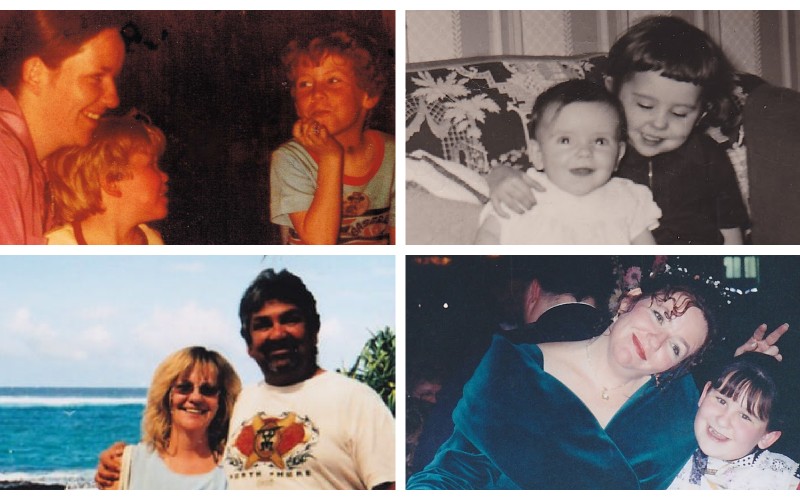Other Categories
You recently retired after 15 years as head of Consumers Union’s Safe Patient Project. What led you to focus your career in patient safety?
I took a long road to patient safety but it was actually a fairly natural development. My work with the Safe Patient Project allowed me to use all of the skills I had developed over more than two decades of public policy and organizing in various jobs. These roles included advocate for domestic violence & sexual assault survivors to juvenile probation officer to legislative director of the TX Senate Committee on Health and Human Services to public interest lobbyist in TX (for Consumers Union) on health issues. My state lobbying covered many health issues including access to health insurance, oversight of physicians/health care providers, hospital regulation, and quality of care. All of that gave me a broad base of knowledge about the health care system. My work on state legislation to require hospitals to report their billing data to be used for public quality reports planted the seed for public reporting of hospital-acquired infections. In 2003, Consumers Union launched numerous focused national campaigns to protect consumers. I proposed model legislation requiring states to publicly report hospital infections. At the time, CDC acknowledged this was a widespread problem but no one actually knew where and when patients were being infected. There was no accountability to patients or the public and despite evidence to the contrary, the prevailing attitude by health experts was that these infections could not be prevented.
What would you say is your biggest victory in fighting for patient safety?
Public reporting of hospital-acquired infections. Consumers Union first took model legislation to the states in 2004, and within 5 years more than 30 states had adopted new laws to report infections. We engaged consumers locally in every state and collected patient stories, which were instrumental in passing these new laws by bringing media attention to the true impact of these infections. Once a critical mass of states had laws, the Centers for Medicaid and Medicare Services (CMS), a federal health agency, initiated reporting as part of an existing quality reporting program. My work in this area taught me the value of focusing on one issue until it was done. However, the work never seems to be done in health care policy. Battles remain to give the public understandable and meaningful information and to prevent opponents from chipping away at the public reporting and the pay for performance programs now in place based on what these infection reports reveal.
Why is public reporting of healthcare-associated infections so important?
Because infections and other medical injuries happen one at a time, they are for the most part hidden. Many patients and their families don’t even know that they were harmed by a preventable problem that is widespread, happening to 1 in 25 hospital patients. Collecting these events and reporting them to the public is an essential part of raising public awareness and public outrage to pressure hospitals to improve. Almost more important is that hospitals and health care providers use this information to assess internal improvements or lack thereof. Public reporting allows hospitals to see how their performance stacks up against other hospitals.
What advice do you have for patient advocates working to eliminate medical harm in America?
Recognize the importance of your voice and use it. Don’t expect to be popular, you often will be the only one raising issues on behalf of patients. Find other like-minded advocates who can help you sort through issues and strategize about ways to use the power of your story to bring about positive changes. Have faith that your voice makes a difference. Listen, learn the facts and use them when you push for changes. Focus on one area, become knowledgeable about it, then help other advocates by sharing that knowledge.
What can the average person do to help make the United States healthcare system safer?
I’m often struck by how often people accept unsafe care – they often blindly trust the medical community without questioning why “complications” occur or whether an infection was part of a larger preventable outbreak. On a personal level, the easiest thing people can do is to be pro-active in their own health care experiences or those of family members/friends they might be advocating for. Always ask what your surgeon, doctor or other health care provider is going to do to prevent infections or errors. That puts it on their radar. People should not be afraid to ask questions about the treatment being recommended (e.g., what are the alternatives?) or when something doesn’t seem quite right.
A 2015 national Consumer Reports poll found that patients who said they rarely received respect from hospital staff were two and a half times more likely to experience a preventable medical error as those who felt they were usually treated with respect. They identified some “respectful” behaviors: hospital staff treating them as adults able to be involved in their own care, listening to them without interrupting, and having their wishes about treatment being honored. About 20% of patients believed they weren’t always treated fairly and without discrimination. These are serious issues that hospitals need to address. They also speak to the importance of patients speaking up about their treatment wishes and insisting on being listened to by doctors and nurses. These simple actions could actually save your life.
Hospitals should also take note of some simple interventions that most patients in that poll felt would be helpful: (1) On a “white board” or a piece of paper, provide you with a daily summary of who is taking care of you, your goals for the day, your medications, allergies, what is scheduled for the day (tests, procedures, surgeries), and your current diet. (2) At your bedside, have the departing nurse introduce you to your nurse for the next shift so you can discuss your care and current condition, and plans for the next shift. (3) Your doctor, nurse or other member of the hospital staff specifically encourages you to speak up if you have a concern about safety, courtesy or anything else
At the community level, it is critical for activists to raise awareness about local hospitals’ performance. You can help people understand the results by translating the public reports available about your local hospitals. Tell a story of the impact a health care acquired infection can have on a patient’s life or the lives of their families. Even a small group of residents can make a difference by publicly questioning hospitals with high infection rates or asking to meet with hospital leaders. These actions can stimulate more and better prevention activities.




Dear Lisa McGiffert, Given the correlation of Trehalose and c.diff; Can you help with forcing companies to specifically label products that use Trehalose ? Thank you so much, Cindy